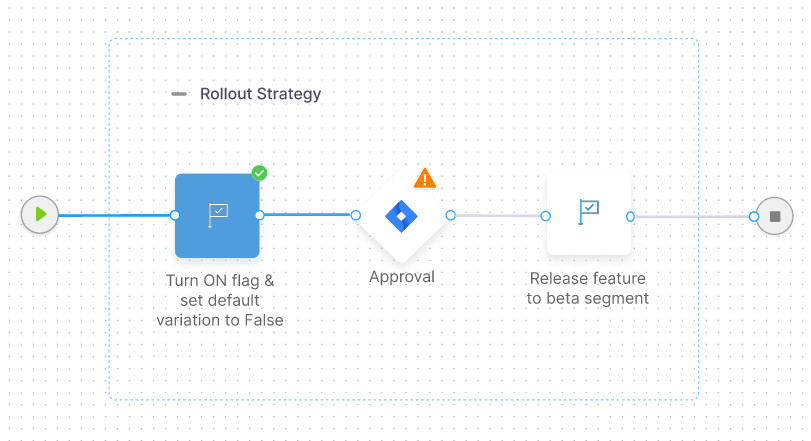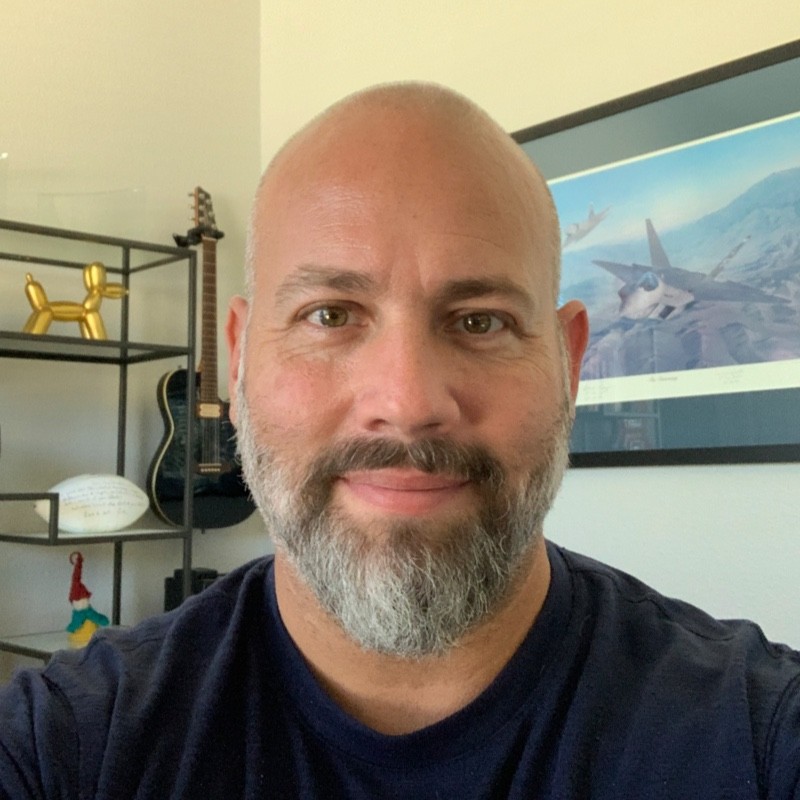
Harness launched a Community Edition for Continuous Delivery, offering source-available licensing, and introduced new features across CI/CD, Feature Flags, and Cloud Cost Management to enhance software delivery speed and safety. Notable updates include support for AWS EC2 Windows & Linux instances, .Net framework on Windows, and public APIs for feature flag management, alongside educational initiatives through Harness University.
Hopefully everyone got to enjoy the holidays. Here at Harness, we worked, we played, we relaxed, and then we got back to working hard on all the things that companies need to build and deliver software quickly and safely. Honestly, this is what we love, so it doesn't feel much like work.
We had a massive announcement in January with the release of Harness Community Edition ... Harness Launches Source Available Continuous Delivery

New Features
CI
- Support for AWS EC2 Windows & Linux Instances as Build Infrastructure - This brings a new capability for running builds directly on windows and linux based VMs, in Docker containers or directly on the host machines. This is also useful when needing to run Docker commands directly, as running Docker commands in K8S requires privileged mode as opposed to running it on VMs.
- Support .Net framework on windows - Customers are now able use Test Intelligence with their .Net framework applications in order to optimize and reduce their unit test execution time.

CD
- Skip Validations while setting up Connectors - We have introduced a checkbox 'Skip Validation' for ServiceNow and Artifactory connectors. Checking this box will allow the user to skip credentials verification while creation / updation to go through. Default behavior would be followed if the box remains unselected.
- Use Assume Role with Terraform Provisioners - Now you can use Assume role with Terraform provisioners by assuming the delegate to have access to your Terraform and there is no need to provide the credentials inline. Providing new Functionality behind feature flag: TERRAFORM_AWS_CP_AUTHENTICATION.
- IRSA credentials to setup your Cloud Providers via GQL - Now you can use IRSA credentials to setup your Cloud Providers via GraphQL APIs.
Feature Flags

- Public APIs - Users can now use APIs to programmatically create, edit, and manage feature flags in their systems. In addition to using a UI, teams can leverage the API to automate some of the feature flag management work they’d typically do. Move faster while you work the way you prefer.
- Proxy service for single access points - For customers who prefer to have only one open connector to Harness, they can use the proxy service to connect multiple servers or streams via a single access point. For Enterprise, it creates flag state resiliency in case of outages, and allows teams to work in air-gapped environments.
Cloud Cost Management
- Fixed Schedules for AutoStopping Rules - Users can now schedule fixed windows of uptime or downtime irrespective of activity or idleness of the resource. It’s easy to setup and can be configured for multiple fixed windows per rule. It eliminates the need for DevOps teams to maintain additional scripts to handle these scenarios.
- Azure VMs Inventory Management - Users can now manage inventory of Azure VMs with dedicated OOTB BI Dashboards that includes cost, utilization metrics and associated tags.
Harness University
New Modules and Courses:
We have new courses now available at Harness University.
Harness Security Foundations: This path covers various security topics including Delegate security, Role Based Access Control, Authentication and Authorization, Auditing and Governance, Secrets Management and best practices for security and Harness.
Deployment Verification: This course covers deployment verification concepts and how to set up your verification steps within Harness.
Application Architectures: This module will introduce different types of application architectures and the evolution from monoliths to micro services and containers.
Harness University Live:
We are offering Continuous Integration and Feature Flags Live Training starting this year!
- February 14th and 15th 2022: Harness Fundamentals, 6am-9am PST.
- February 16th 2022: Harness Administration, 6am-10am PST.
- February 17th 2022: Harness Continuous Integration and Feature Flags, 6am-9am PST
To register for February and beyond, view our Live Events Calendar.
Harness Community
Community Forum:
- The Drone.io CI Community Forum has been merged into the Harness Community Forum.
Meetups:
- Harness CD Community Edition Meetup 1/19/22
- Event page: Meetup
- Youtube Recording: Youtube
- Drone CI Meetup 1/26/22
- Event Page Meetup
- Youtube Recording: Youtube
To register for upcoming Harness Community Meetups, visit www.meetup.com/harness.
Notable Mentions in the Press
- OpenSourceInitiative: “Harness is doing the right thing by making clear where they are using an OSI-approved license and where they are not. Doing so respects the community and builds trust,” - OSI ED @smaffuli
- Harness Opens Its CD Service In A Community Edition
- Harness CD Platform Now Available via Source-Available License
- Harness releases open version of continuous delivery product with access to source code
- Harness Opens Up CD Platform with Source-Available Edition for DevOps
- SD Times Open-Source Project of the Week: Harness community edition
- DevOps: CI/CD Tools to Watch Out for in 2022 - CI/CD is an integral part of any successful DevOps team. This list includes the finest CI/CD tools currently available in the market.
Upcoming Events
- Developer Week - 2/2-2/4
- Topgolf Schaumberg - 2/17
- West 2022 -2/15-2/18
- NADOG Dallas 2/16
- Rocky Mountain Cyberspace Symposium 2/21-2/24
- Whiskey Tasting 2/24
- Executive Wine Tasting 2/24
Upcoming Webinars & New On-Demand Content
- Building a Successful Pipeline for On-Premises Continuous Delivery - Feb 17 at 1:00 PM ET with DevOps.com
- The State of Modern Data Architectures - 2/24 at 10 AM ET with the Linux Foundation
Looking Ahead
In the next few weeks/months, here’s what’s coming at ya:
CI
- Support .Net Core - Customers are now able use Test Intelligence with their .Net Core applications in order to optimize and reduce their unit test execution time.
- Support for self signed certificate for CI steps
- OSX support - ability to run builds on OSX machined, in Amazon as directly on physical machines.
- Plugin Cards - allow plugins to extend Drone’s UI by contributing visualization to the build summary view. This feature provides a central location of high level insights into what is happening in the build and allows developers to identify bugs and defects faster. This feature is planned to be added to the Harness platform in Q2 2021.
CD
- Shell Script Timeout errors to be handled by a new Failure strategy - You will be able to have a separate failure strategy for Shell scripts if they are timing out and another for the rest of the failures. This is going to be behind a Feature Flag.
- Event Rules for Workflow events - We are enhancing our Event rules which were earlier supported for only Pipeline events to now support workflow events (Workflow start, Workflow end, Workflow paused and Workflow continued) as well. We will send these events in both cases if it’s a direct workflow execution or the workflow is executing as part of the pipeline. This is going to be behind the same Feature flag - APP_TELEMETRY
- Support rollback provisioner after phases enhancements - As part of MVP we built the support for having a new option in the failure strategy as Rollback Provisioners after Phases at workflow & step level. We are extending the same while a manual intervention is waiting for an action & for the manual rollbacks triggered by you. This is going to be behind the same Feature flag - ROLLBACK_PROVISIONERS_AFTER_PHASES
- Github webhook secret to be mandatory for triggers - With this change there will be an app level setting by which you can make it mandatory for all the github triggers to contain Webhook secrets or else the invocations will fail. This is going to be behind the Feature flag - GITHUB_WEBHOOK_AUTHENTICATION
- Expression for Step names - With this change you will be able to access Step names using an expression within the step.
- Inline hosts support for Target to specific hosts - With this change you will be able to provide the hosts which are not present in the infrastructure definition in the target to specific hosts. You will also have the option to provide an expression which refers to the list of hosts. This is going to be behind the FF - DEPLOY_TO_INLINE_HOSTS
- Support for Non Containers Azure App Services - With this you will be able to deploy war, nuget, zip on Azure Web App from following artifacts sources like ARTIFACTORY, NEXUS, JENKINS, AZURE_ARTIFACTS. This is going to be behind the FF - AZURE_WEBAPP_NON_CONTAINER
- Cloud Formation operations with backoff strategy - We are going to support exponential backoff strategy for all the CF operations. This is going to be configurable by setting some account level defaults.
- Instance Sync for SSH services - We are going to provide the instance sync for SSH deployments (PDC, AWS & Azure) by which the service dashboard will contain the real time values of instances which are up for these services.
- Deprecated -force fromTerraform Destroy for version 15 - With Terraform version 15, -force option has been deprecated. We are deprecating the same in harness as well.
Feature Flags
- New SDKs
- Ruby
- Xamarin
- Access to Free Forever and Team plans - Users will be able to use feature flags for free forever. And if they need to scale up, there’s a team plan that brings them onto the Harness platform for a reasonable cost.
- Target management UX upgrades - We’ve gotten feedback from customers about ways that target management for flags could be better. We’ve acted on that feedback and we’ll be rolling out a big UX improvement next month.
- AutoStopping summary page enhancements - With these enhancement, users will have the various options to search, sort and filter AutoStopping rules. You will be able to sort rules by savings, name or last activity. Further you can search and filter by using name, hostname or cloud provider.
- AutoStopping custom exclusions - Users will be able to exclude certain types of traffic from starting your resources associated with AutoStopping rules. If these excluded traffic requests are detected, instances will remain in a stopped state.
- Workload Recommendations enhancements - These enhancements allow users to add buffers to historical utilization metrics considered when suggesting recommendations. Additionally, you will be able to specify QoS (Quality of Service) as Guaranteed or Burstable for Kubernetes pods.
- Node recommendations enhancements - This update will provide similar buffers to historical CPU/Memory utilization metrics used while suggesting recommendations like with Workload recommendations. It will provide the ability to specify preferred node instance families.
Whew, that was a lot but just wait until you see what we accomplish in February.
